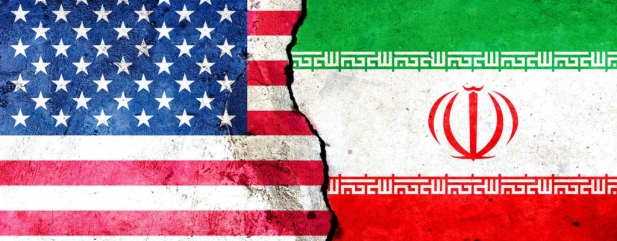Archived article
Please note that tax, investment, pension and ISA rules can change and the information and any views contained in this article may now be inaccurate.
What Iran-US tensions mean for markets and investors

Of all the risks investors were weighing for the year ahead, a big escalation of hostilities in the Middle East was not foremost in most people’s minds.
However, recent developments in the region have intervened to interrupt a promising start to 2020 for stocks. This remains a fluid and febrile situation and something which could continue to affect markets in both the short and medium term.
WHAT HAPPENED?
On 3 January a US airstrike on Baghdad airport killed top Iranian general Qasem Soleimani. The targeted drone attack was sanctioned by US president Donald Trump on the basis that Soleimani represented an ‘imminent threat’ to American lives.
Subsequent tweets from Trump suggesting the administration would respond ‘disproportionately’ to any retaliation from Iran and threats of sanctions if Iraq expels troops from the country further inflamed tensions. There is also concern that Iran will resume its nuclear programme in earnest.
A 1m-strong procession in Tehran revealed the strength of feeling about the incident and on 7 January dozens of attendees of Soleimani’s funeral in his hometown of Kerman died in a stampede.
Less than 24 hours later Iran launched missile strikes on US bases in Iraq.
WHAT WAS THE MARKET REACTION?
Markets fell in response to the news, although the FTSE 100 bucked the negative global trend thanks to the boost for index heavyweights BP (BP.) and Royal Dutch Shell (RDSB) as oil prices rose to factor in potential disruption to supply from the Middle East.

Brent crude oil prices climbed above $70 per barrel for the first time September 2019 when there was an attack on Saudi oil facilities which the US blamed on Iran. There has been a warning in the wake of the latest developments that a renewed attack on Saudi infrastructure could be in the offing.
Having fallen back on a period of brief calm, news of the Iranian strikes on US targets in Iraq put upward pressure on crude prices again.
WATCH CURRENCIES AND GOLD
One thing for investors to watch as a measure of how the market is feeling about risk is the exchange rate between the US dollar and Japanese yen.

Strength in the yen against the dollar is typically a sign of weakening sentiment, notably it coincided with a big sell-off in equities in the second half of 2015 and early part of 2016.
The latest tensions between the US and Iran have stoked investor interest in gold, seen as a safe-haven asset. This helped the precious metal extend the rally seen in recent months to hit its highest level since 2013, briefly topping $1,600 per ounce.

WHY IT MATTERS TO MARKETS
There are multiple reasons why tensions in the Middle East have an influence on the markets. Oil prices are a big part of it, even if the world’s reliance on Middle Eastern crude has been lessened by significant growth in US shale production in recent years.
A significant chunk of the dividends and earnings from UK stocks come from oil majors BP and Shell. The impact of higher oil prices on the economy can’t be discounted either. For now there is little sign of the doubling in prices which most observers suggest is required to prompt a global recession.
Conflict also creates plenty of the uncertainty which markets hate, even if the strong performance during other US military excursions is a reminder that there are other factors at play in the performance of equities.
WHAT HAPPENS NEXT?
This is likely to depend on efforts allies of both parties to de-escalate the situation, if there is any further Iranian retaliation after its initial missile strikes and how the US acts next.
As we went to press the US response to the attacks on Iraqi bases was still unclear bar an unusually measured response on Twitter from Donald Trump. There are suggestions in some quarters that Iran’s relatively limited action might provide cover for both sides to step away from the precipice of further conflict.
The imbalance between Iran’s military capabilities compared with the US makes direct outright warfare between the two countries unlikely.
Iran could respond further through attacks via proxy groups, the most high profile of which is Hezbollah in Lebanon, as well as through cyber warfare. The country has already said it will no longer abide by the key commitment on enrichment under its nuclear deal.
Important information:
These articles are provided by Shares magazine which is published by AJ Bell Media, a part of AJ Bell. Shares is not written by AJ Bell.
Shares is provided for your general information and use and is not a personal recommendation to invest. It is not intended to be relied upon by you in making or not making any investment decisions. The investments referred to in these articles will not be suitable for all investors. If in doubt please seek appropriate independent financial advice.
Investors acting on the information in these articles do so at their own risk and AJ Bell Media and its staff do not accept liability for losses suffered by investors as a result of their investment decisions.

 magazine
magazine








